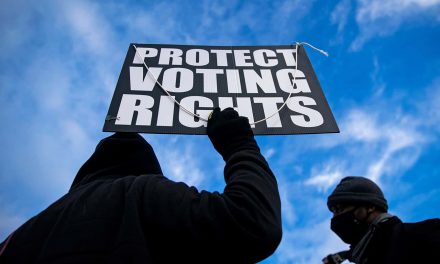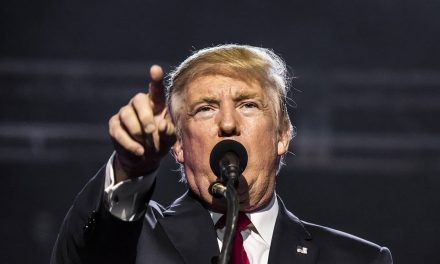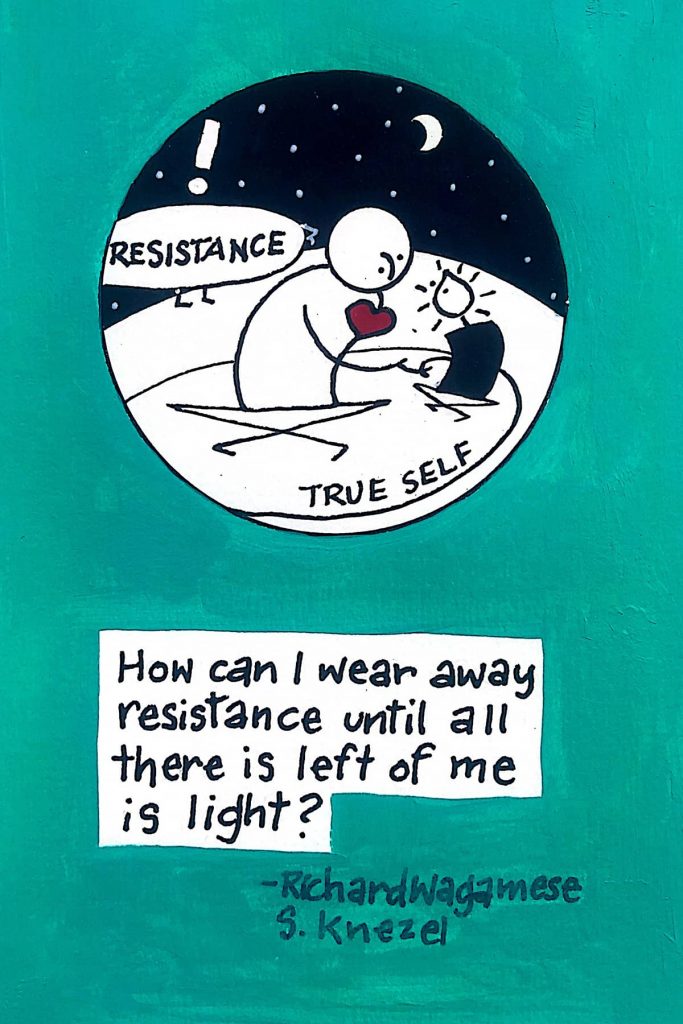
Long before Donald Trump was elected to the highest office in the land, many scholars shared their fear that American democracy was in jeopardy. Since the 2016 election, it has become clear that the system envisioned by the Founding Fathers is ending.
Farhad Manjoo warned about this in his recent New York Times column, I’m Doomsday Prepping for the End of Democracy. Manjoo pointed to political violence on the streets, the pandemic, unemployment, racial polarization, and natural disasters, all of which are destabilizing the country, and noted that Republicans appear to have abandoned democracy in favor of a cult-like support for Donald Trump. They are wedded to a narrative based in lies, as the president dismantles our non-partisan civil service and replaces it with a gang of cronies loyal only to him.
He is right to be worried. Just the past few days have demonstrated that key aspects of democracy are under attack.
Democracy depends on the rule of law.
On September 6, we learned that Postmaster General Louis DeJoy, who rose to become a Cabinet official thanks to his prolific fundraising for the Republican Party, apparently managed to raise as much money as he did because he pressured employees at his business, New Breed Logistics, to make campaign contributions that he later reimbursed through bonuses. Such a scheme is illegal. A spokesman said that Dejoy “believes that he has always followed campaign fundraising laws and regulations,” but records show that many of DeJoy’s employees only contributed money to political campaigns when they worked for him.
Democracy depends on equality before the law.
But Black and brown people seem to receive summary justice at the hands of certain law enforcement officers, rather than being accorded the right to a trial before a jury of their peers. In a democracy, voters elect representatives who make laws that express the will of the community. “Law enforcement officers” stop people who are breaking those laws, and deliver them to our court system, where they can tell their side of the story and either be convicted of breaking the law, or acquitted. When police can kill people without that process, justice becomes arbitrary, depending on who holds power.
Democracy depends on reality-based policy.
Increasingly it is clear that the Trump administration is more concerned about creating a narrative to hold power than it is in facts. Trump tweeted on September 6 that “Our Economy and Jobs are doing really well,” when we are in a recession – defined as two quarters of negative growth – and unemployment remains at 8.4%.
The drive to create a narrative led to a new low as the government launched an attempt to control how we understand our history. On September 4, the administration instructed federal agencies to end training on “critical race theory,” which is a scary-sounding term for the idea that, over time, our laws have discriminated against Black and brown people, and that we should work to get rid of that discriminatory pattern.
Trump tweeted on September 6 that the U.S. Department of Education will investigate whether California schools are using curriculum based on the 1619 Project from the New York Times, which argues that American history should center on the date of the arrival of the first enslaved Africans to Chesapeake shores. Anyone using such curriculum, he said, would lose funding. Government interference in teaching our history echoes the techniques of dictatorships. It is unprecedented in America.
Democracy depends on free and fair suffrage.
The White House is trying to undermine our trust in the electoral system by claiming that mail-in ballots can be manipulated and will usher in fraud. While Trump has been arguing this for a while, last week Attorney General William Barr, a Trump loyalist, also chimed in, offering a false story that the Justice Department had indicted a Texas man for filling out 1700 absentee ballots. In fact, in 2017, one man was convicted of forging one woman’s signature on a mail-in ballot in a Dallas City Council race. Because mail-in ballots have security barcodes and require signatures to be matched to a registration form, the rate of ballot fraud is vanishingly small: there have been 491 prosecutions in all U.S. nationwide elections from 2000 to 2012, when billions of ballots were cast.
Interestingly, an intelligence briefing from the Department of Homeland Security released on September 4 said that Russia is spreading false statements identical to those Trump and Barr are spreading. The bulletin says that Russian actors “are likely to promote allegations of corruption, system failure, and foreign malign interference to sow distrust in Democratic institutions and election outcomes.” They are spreading these claims through state-controlled media, fake websites, and social media trolls.
At the same time, we know that the Republicans are launching attempts to suppress Democratic votes. On September 2, we learned that Georgia has likely removed 200,000 voters from the rolls for no reason. In December 2019, the Georgia Secretary of State said officials had removed 313,243 names from the rolls in an act of routine maintenance because they were inactive and the voters had moved, but nonpartisan experts found that 63.3% of those voters had not, in fact, moved. They were purged from the rolls in error.
And, in what was perhaps an accident, in South Carolina, voters’ sample ballots did not include Democratic candidates Joe Biden and Kamala Harris, although they did include the candidates for the Green, Alliance, and Libertarian parties. When The Post and Courier newspaper called their attention to the oversight, the State Election Commission, which is a Republican-majority body appointed by a staunch Trump supporter, updated the ballots.
Democracy depends on the legitimacy of (at least) two political parties.
Opposition parties enable voters unhappy with whichever group of leaders is in power to articulate their positions without undermining the government itself. They also watch leaders carefully, forcing them to combat corruption within their ranks. This administration has sought to delegitimize Democrats as “socialists” and “radicals” who are not legitimate political players. On September 6, Trump tweeted: “The Democrats, together with the corrupt Fake News Media, have launched a massive Disinformation Campaign the likes of which has never been seen before.”
For its part, the Republican Party has essentially become the Trump Party, not only in ideology and loyalty but in finances. On September 5 we learned that Trump and the Republican National Committee have spent close to $60 million from campaign contributors on Trump’s legal bills. Matthew Sanderson, a campaign finance lawyer for Republican presidential candidates, told the New York Times, “Vindicating President Trump’s personal interests is now so intertwined with the interests of the Republican Party they are one and the same — and that includes the legal fights the party is paying for now.”
The administration has refused to answer to Democrats in Congress, ignoring subpoenas with the argument that Congress has no power to investigate the executive branch, despite precedent for such oversight going all the way back to George Washington’s administration. Just last week, a federal appeals court said that Congress has no power to enforce a subpoena because there is no law that gives it the authority to do so. This essentially voids a subpoena the House issued last year to former White House counsel Don McGahn, demanding he testify about his dealings with Trump over the investigation into the ties of the Trump campaign to Russia. The decision will likely be challenged.
On September 4, U.S. Postal Service police officers refused Florida Congresswoman Debbie Wasserman Schultz (D-FL) entry to one USPS facility in Opa-Locka, Florida and another in Miami. Although she followed the procedures she had followed in the past, this time the local officials told her that the national USPS leadership had told them to bar her entry. “Ensuring only authorized parties enter nonpublic areas of USPS facilities is part of a Postal Police officer’s normal duties, said Postal Inspector Eric Manuel. Wasserman Schultz is a member of the House Oversight and Reform Committee.
And finally, democracy depends on the peaceful transition of power.
Trump has repeatedly suggested that he will not leave office because the Democrats are going to cheat. So we should definitely worry. But should we despair? Absolutely not.
Convincing people the game is over is one of the key ways dictators take power. Scholars warn never to consent in advance to what you anticipate an autocrat will demand. If democracy were already gone, there would be no need for Trump and his people to lie and cheat and try to steal this election. And I would certainly not be writing this.
Americans are coming together from all different political positions to fight this attack on our democracy, and we have been in similar positions before. In 1858, Abraham Lincoln spoke under similar circumstances, and noted that Americans who disagreed on almost everything else could still agree to defend their country, just as we are now. Ordinary Americans “rose each fighting, grasping whatever he could first reach – a scythe – a pitchfork – a chopping axe, or a butcher’s cleaver,” he said. And “when the storm shall be past,” the world “shall find us still Americans; no less devoted to the continued Union and prosperity of the country than heretofore.”
Tom Thai / Banksy
Letters from an Аmerican is a daily email newsletter written by Heather Cox Richardson, about the history behind today’s politics














